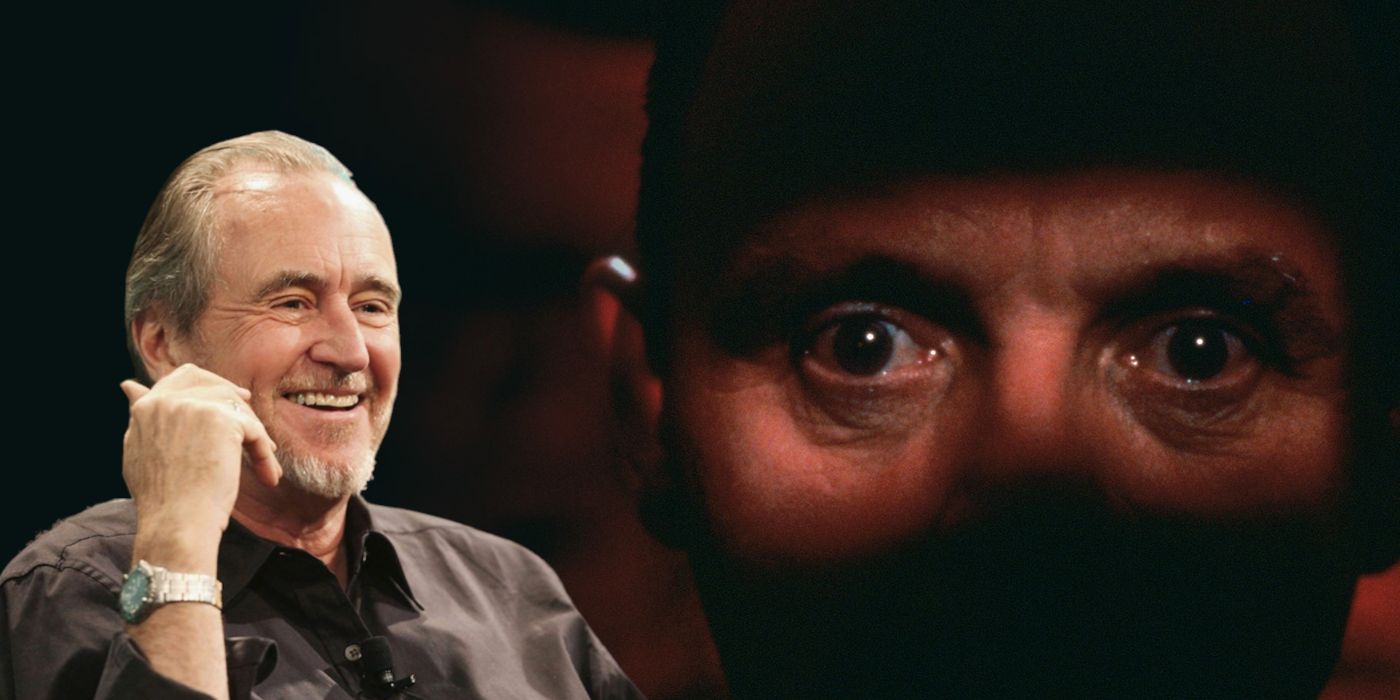
In the world of horror movies, it doesn't get much bigger than writer and director Wes Craven. Before his passing, he was incredibly well known in both the horror community and the general film world, primarily for his creation of the A Nightmare on Elm Street and Scream franchises. Both have spawned multiple sequels and are well known for their iconic movie villains - Freddy Krueger and Ghostface. Fans would think that with these characters under his belt, Craven's favorite villain would be one of his own creation. However, another classic killer held the title.
In a November 2012 issue of Forbes, Craven sang the praises of none other than Hannibal Lecter. Though Lecter appears in many works, including novels, films, and television shows, the version of the character that Craven was referring to was Lecter in his most well-known form. That would be the character's appearance in the 1991 classic crime-horror film The Silence of the Lambs. The film swept the Academy Awards, becoming only the third film to win all five major categories, and remains the only horror film to ever win Best Picture at the show. Anthony Hopkins also won Best Actor for his portrayal of the killer.
RELATED: The Best Horror Movies Use Social Commentary For Scares
Though it's not common for people to list their own creations as their all-time favorites, it's likely widely agreed upon that no one would have been angry if Wes Craven's favorite villain was Freddy Krueger. It's hard to get better than a wisecracking dream demon with finger knives. So why did Lecter win the top spot in Craven's heart? Ultimately, it seems to boil down to fear.
"He showed me the level of sophistication that can be brought to a horror film. With a character like Lecter, who is articulate and intelligent, you can achieve the satanic level of scare - someone with powers greater than you who can outrun you and is totally at ease with violence, is amused by terror and who actually enjoys the process of dismantling you," Craven said, "That's the most primal demonstration of fear, isn't it? Something that can completely destroy you to the extent that it actually takes your flesh into its body. That's total ownership. Totally terrifying."
Dr. Hannibal Lecter first appeared in Thomas Harris's 1981 novel Red Dragon. He's a cannibalistic serial killer, who before his arrest was a well-known psychiatrist. The Silence of the Lambs cemented his place as a legendary villain of horror, and Craven was certainly not alone in listing him as one of the best of all time. In 2003, the American Film Institute named him as the greatest villain in the history of American cinema.
It's been 30 years now since The Silence of the Lambs was released, and Hannibal still affects people. As Craven said, the character is seen as incredibly sinister. The personality traits and tendencies that Harris crafted him with make this sort of ultimate creepy character. Not only is he a psychiatrist, which is a position generally associated with intelligent and insightful people who long to help others, but he eats people. Cannibalism is one of the world's ultimate taboos and adding cannibalistic tendencies to any villain makes them instantly scarier.
Craven's very first film The Last House on the Left is a very dark and serious film, however that style is incredibly different to his most well-known works. Though he was and will always be known as a master of horror, his works were known for being scary and definitely horror but also a little zany and tongue-in-cheek. His involvement in A Nightmare on Elm Street was limited to only the first film before returning ten years later for Wes Craven's New Nightmare. That means he wasn't around for the Nightmare series at its kookiest, but it was always rooted in something a bit fantastical.
In 1996 he began another hit franchise with the first Scream film, which is a fairly obvious satire of slasher films as a whole. Craven being most well-known for his more wacky and comedic creations is possibly why a character like Hannibal Lecter was so effective to him. It's a lot darker and a lot more straightforward sinister than the villains he was putting into the genre. There is absolutely nothing funny about Hannibal Lecter, yet people still find comedy in characters like Freddy Krueger.
Craven, unfortunately, passed away in 2015 due to a brain tumor, just after his 76th birthday. His contributions to the world of horror have cemented him as one of the greats of the genre and his influence is still very much present for newer horror filmmakers. Even after his death, his works remain immensely popular and there's a fifth Scream film currently in the works that has many of the original cast involved. This will be the first of the franchise to not be directed by him, though fans certainly hope that it'll still have his influence. Seeing the insight into his taste and what affects him, and recognizing that his favorite villain is someone very different to his own creation, offers a look into his character and thought process that his fans should appreciate and take note of.
MORE: What's Next For Richard Stanley's Lovecraft Trilogy After Color Out Of Space?

